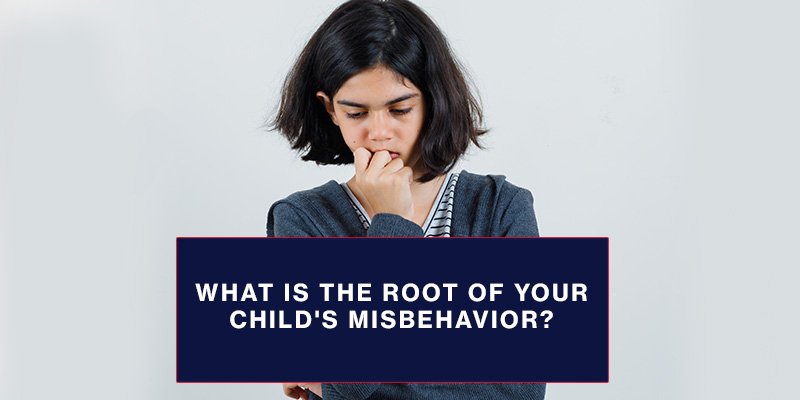Everything has a beginning, so it is no surprise that children’s misbehavior has one too. Often disguised as “mischief” or “tantrums,” the little ones begin to show poor behaviors or act in undesirable ways, upsetting and frustrating their parents and caregivers.
Parents continually tell me about their offspring’s aggressive behaviors when seeking professional help, desperately trying to find magic solutions or simple answers to stop the snowball that has been growing. But honestly, there is no single, easy answer.
So, if you find your two-year-old daughter sticking her fingers into the electrical outlets or your five-year-old son throws his toys when he does not want to go to kindergarten, or the school calls because your ten-year-old boy is bullying other students, this will not be the end of it.
Misbehavior appears at a very early age, and it does not stop until we, as parents, can put an end to it. Something may seem small to you today and you may assume it will disappear as your child grows up, but it probably won’t. What seems to tiring to correct today will probably continue, getting worse and affecting the child’s social development, which will follow them as adolescents and then adults.
It is time to take action as parents. However, to act, it is essential to know the root of the problem. So, I hope I can help you understand how you could be wasting valuable time that could be used to help your children become good men and women in the future.
Why is your child misbehaving?
Everything has a consequence in life, please keep this in mind. That reckless little girl who placed her fingers where she was not supposed to place them, in the future, could be someone clueless or forgetful. The same happens with the child who does not want to go to class or the one who causes problems at school.
You must understand that these are behaviors that must be stopped before they escalate in severity, but it takes us to the same dilemma — why do children behave like this? Are they unaware? Do they do it unintentionally? Perhaps my answer will surprise you, but, children are more intelligent than you think.
The root of the problem
To understand what I mean, we need to delve into the term purposive behavior, or intentional behavior. According to psychiatrist Alfred Adler, all social behavior will lead to a specific purpose. He believed that people do not act randomly, human behavior does not exist without a reason that explains it. It is a chain of actions that will work so that certain objectives can be achieved.
While individuals may not be aware of the link between goals and behaviors, the link is still there, it still exists, and it affects their behavior.
With all this in mind, the initial question remains: why do children behave this way? The intention behind the behavior is to get our attention. If you do not think that children use our attention as some kind of secret weapon, consider the following approach: you perform an action and the action fulfills a purpose, would you not repeat the action? Of course, you would, over and over again until it stops generating results. This logical sequence is the same one child follows, even at a young age.
Why do our children seek our attention?
When a child comes out of his/her mother’s womb, he/she will do so yearning to feel loved and accepted. And for this, he/she will need attention. But, such attention, according to ethologist Konrad Lorenz, is derived from a biological need. It is demonstrated through the principle of imprinting.
Imprinting refers to rapid learning that occurs in a critical phase of life. It is explained through the famous experiment with ducklings. When a duckling is born, it will consider the animal or object it sees first as its “mother.” It may see the mother right after, but it will not consider it to be its mother.
Attachment to the mother figure is explained by the need to survive in this world. The first source of love, security, and teaching on how to feed. Ducks and humans, as strange as it may sound, are similar since infants are inseparable from their mothers during lactation.
Children need attention
Every little piece of attention is absorbed by babies in those months, they practically become sponges. And, later, they will copy the behaviors that were demonstrated. At this stage, children are shapeable by:
- good examples,
- the love has given to them and,
- above all, the positive attention that is given to them,
- as well as the education.
This is why a child can learn a second language more easily in his/her first years of life. Likewise, we must understand that we were created to experience social connections. So, when a mother or father does not pay attention to their children, they will need and seek it at all costs.
This is due to they are experiencing a lack of acceptance, understanding, and love. Although at first sight, they act as though they are repelled by displays of affection. Or our presence, they will always be grateful for it within themselves.
Remember that everything created by God is interconnected. We were created in His image and likeness, and we are designed to live in a community. As it is in a community w can create transcendental bonds, allowing us to live a more stable and peaceful life.
The importance of the attention
It is extremely important to know the emotional and psychological basis that comprises the foundation of the individuals in our society. The experiences we live at an early age will determine our perception of reality as adults. And therefore our actions in each situation or challenge that we face throughout our lives. God wants us to be happy adults. It has always been His plan that we have interpersonal relationships that fill us with happiness. He wants us to have a full and happy relationship with Him.
I ask you then, did you know these concepts? Do you consider that experiences you lived throughout your childhood have determined your actions in the present? Share your answers and your opinion with us in the comments section of this post. God bless you.












